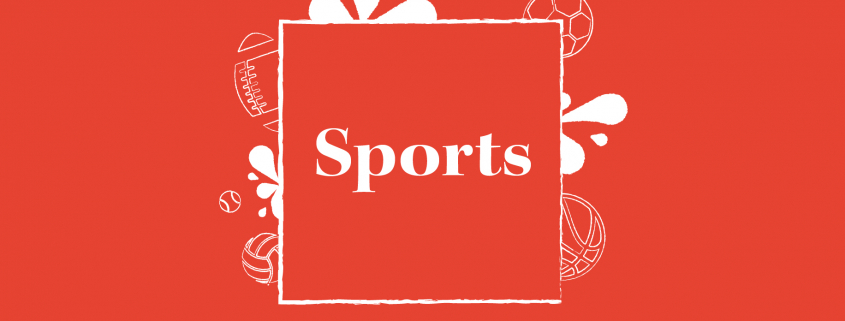Behind the Jersey: Self-acceptance and growth of a biracial female athlete
If I had a dollar for every time I have been asked “What are you?” I would be extremely well-off. As a biracial woman who is half Black and half Japanese, my appearance is quite racially ambiguous, which leads many people to question my race and where I am from.
Now, I understand that most of the time, these people are genuinely asking out of curiosity with no ill intentions because they simply cannot make the assumption. However, as the person on the receiving end of this question, I often feel both confused and upset that I have to explain my identity to someone I hardly know. For a long time, questions regarding my race and background have led me to question who I was or “what” I was.
Having my race and identity constantly questioned made me really start hating that I couldn’t just be one race to avoid being asked the same question over and over again. On top of this, I felt even more conflicted because I resented that I couldn’t even accept myself for who I was. I hated that I had conceded to an indistinguishable foe.
Along with the dilemma of racial identity, I have struggled with another problem that truly held me down. It’s the problem that I had the hardest time coming to terms with: the unavoidable reality that I will inevitably continue to face conflict with both of my racial communities.
Within the Black community I am not considered to have the Black experience, nor am I “fully” Black. On the other hand, I am never seen as Japanese from a Japanese person’s perspective, so I’m often not “accepted” within the Japanese community — again, because I am not “fully” Japanese.
This concept truly hurt and hindered the development of my identity, as I never felt a sense of belonging, faced with apprehensive thoughts wondering if I would ever belong anywhere. I always wanted to belong to a community and ultimately be accepted for who I was.
As time went on, the hope for that reality diminished. Although that sounds quite downcast, it was a great turning point in my life. Letting go of the desire to be accepted and fit in is what set me on my current journey of self-acceptance and forming my “true” identity.
These back-and-forth internal disputes lasted from my elementary school days all the way until my junior year of college, which was just last year. As I mentioned, I was always trying to find a place to fit in and be accepted. That fight ended when I took a class here at USC taught by Julie Rousseau, who I now revere, called “Identity Development of the Contemporary Female.”
In this class, we heavily covered the concept of intersectionality. Before taking the class, I didn’t know what intersectionality meant; better yet, I had never heard of the term before. For those who don’t know, like I once didn’t, intersectionality is “a lens through which you can see where power comes and collides, where it interlocks and intersects,” according to Patricia Hill Collins and Sirma Bilge in their book “Intersectionality.”
In simpler terms, I interpret intersectionality as the many different aspects that form an individual. In my case, I am a cisgender woman, a biracial woman, a Black woman, a Japanese woman, an athlete, a friend, a daughter, a sister, a teammate and truly whatever I want to be. I have come to terms with the idea that I can be more than just one thing. This concept and ideology has helped me understand that I don’t necessarily need to belong or be accepted into every single group that I am a part of. I know I am unique in my own ways and will naturally find places where I can find my own happiness.
Sports have personally played a huge and extremely integral role in this process of self-acceptance and embracing my identity. Since the age of 5, I have been involved in many different sports: gymnastics, soccer, tennis, basketball, swimming, track and field and volleyball.
Within these sports, I have experienced varying styles of teaching, met many different people from different backgrounds and cultures and experienced things that I don’t think one can encounter outside of athletics.
Life is too short to dwell on something that I personally have no control over (my race), so I have begun to see life for what it is and what I can make of it. I hope that I can help encourage others to similarly take hold of their life, take advantage of their uniqueness and see the undeniable beauty within themselves.
Joy McArthur is a senior thrower on the USC track & field team. She is writing for “Behind the Jersey,” a rotating column among members of USC’s United Black Student-Athletes Association. The column ran every other Wednesday.

